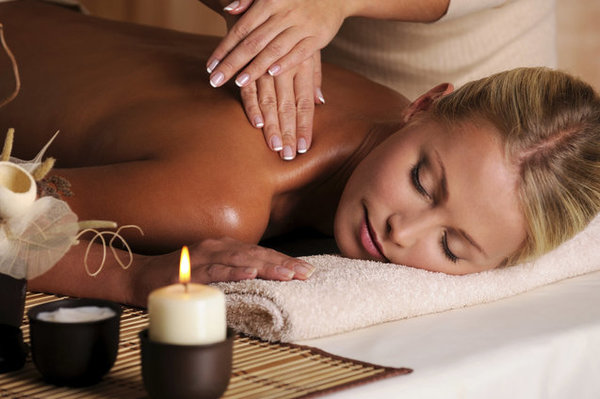Massage is one of the most commonly used therapies and has been used for thousands of years. We often turn to massage either for relaxation, or to address a particular problem area that is causing pain.
The benefits of massage are wider reaching however, and studies have shown that massage can have positive impacts on the brain and mind, as well as our bodies, meaning our overall well-being can profit from massage, not just the specific areas targeted by the massage.
While there is a multitude of types of massage techniques available, from Hot Stone, to Swedish, to Chair Massage, what all good massages should have in common is that they offer significant benefit to the patient.

How Massage Affects Your Well-Being
1. Relaxation
An initial benefit of massage therapy is that it aids physical relaxation by relaxing muscle tissue. Firm, well-trained pressure can reach the fascia (a muscle’s protective tissue) and deeper layers of muscle tissue to release tension from within, as well as releasing nerve compression.
This therapy enables the recipient to sleep better through better physical well-being, which in turn can have a drastic effect on their overall well-being.
2. Pain relief
Tissue massage can relieve everyday aches and pains that prevent us from relaxing properly. It is instinctive to rub our temples if we have a headache or our knee if we bang it; this is because touch helps to modify pain signals being sent to the brain.
3. Stress relief
The effects of being touched can have overwhelming benefits for our whole bodies. The safe touch of massage invites the body to relax, its heart rate and breathing rate to slow, and blood pressure to decrease, which all help to alleviate the physical effects of stress. This may in turn help to reduce the risks associated with stress, such as insomnia, digestive disorders, and sexual dysfunction, to name a few.
4. Injury treatment
Similarly, injury can be treated through remedial massage, where targeted massage can increase the blood flow in the capillaries of the muscles, maximizing the body’s ability to restore itself.
5. Mood improvement
It is also thought that massage increases the level of serotonin, a chemical that positively affects our ability to sleep soundly and our mood levels. Serotonin is connected with our emotional behavior, so symptoms such as negative cravings and irritability can be positively influenced by encouraging greater levels of it.
6. Better focus
Massage has also been connected with greater levels of dopamine. This hormone affects our levels of focus, our fine motor skills and our levels of enthusiasm. It is thought that those with higher levels are better able to concentrate, demonstrate more positivity, and to be less clumsy.
7. Stronger mind
A massage can also have significant psychological benefits by giving an instant boost to our feelings of well-being and altering our perception of fatigue.
8. Increased happiness
Finally, the increased blood flow that results from massage also brings increased endorphins to the brain, which can have a positive influence on anxiety levels and depression.
At the very least, taking time to receive a massage and focus on our own well-being is one of the most positive boosts we can receive.
AUTHOR BIO
Marc Innes is the Owner and Principal of the School of Natural Therapies, a training school for Massage & Holistic Therapies located in London. Marc, began his career in the NHS, working in a number of managerial and training roles within the Ambulance Service in London. Marc spent much of that time educating and coaching medical staff. Over time he developed an interest in all things complementary to Allopathic Medicine, in particular, Reiki Healing, which along with EFT, which culminated in Marc running a successful teaching and ‘energy healing’ practice. Marc is passionate about the massage and complementary therapy industry.

David Loew is a health blog author and editor for a variety of publications. He has written on a wide range of topics, from fitness to nutrition to mental health. He loves working with people who are passionate about improving their lives through bettering their bodies and minds by eating right and staying active as well as those who want to improve their mental health by living life authentically without feeling ashamed or embarrassed about what they’ve been through.

